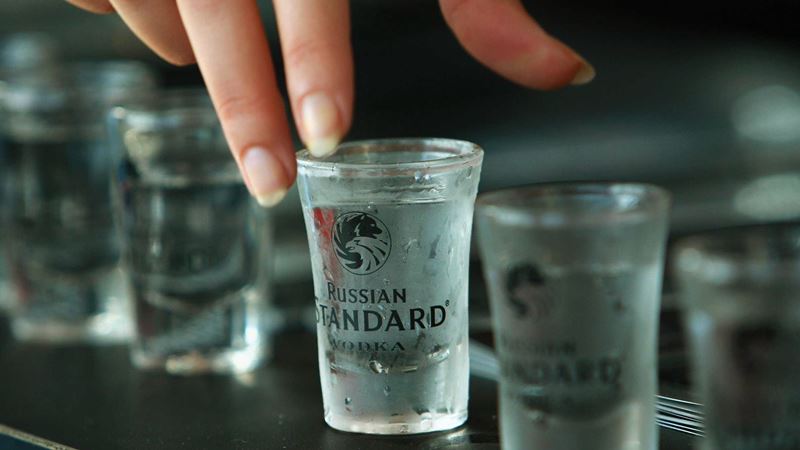Vodka is an alcoholic beverage that is distilled and composed of rye, wheat or potatoes. Vodka was originally intended as medication, while today vodkas are primarily made into cocktails.
Vodka is neutral, whether it’s by appearance, aroma, or color because they smell like nothing and looks exactly just like water. They are also distilled using 95% of alcohol however when they are bottled, it only contains 40% of alcohol.
In this article, we are going to find out more about vodka including the 15 health benefits of vodka.
Types of Vodka
All vodkas are classified as neutral spirits or alcohol.
This means that they have no particular characteristics in terms of taste, aroma, or color. However, there are two types of vodka: regular vodka and flavored vodka.
Regular vodka is any spirit that has been distilled using charcoal or other materials and does not have a distinct flavor.
Flavored vodka, on the other hand, is made with natural flavoring substances. It may or may not contain sugar, and it must be bottled with an alcohol concentration of 30% or more.
The predominant flavor that appears in the vodka should be listed on the packaging, such as “orange flavored vodka.”
A Brief History of Vodka
Vodkas has its roots on ninth century Russia as well as eighth century Poland. During the Napoleonic Wars, vodka was the Russian soldiers’ favorite beverage.
The globalization of vodka started when a Russian peasant farmer, Pyotr Arsenievich Smirnov escaped from Russia to Paris, France during the Russian Revolution of 1917. At his new home, he started a vodka distillery named “Smirnoff”, which is based on his own last name.
Smirnoff is now the largest and the most globalized brand of vodkas.
How is Vodka Made?
Vodka is manufactured using these 6 steps;
1. Grains and vegetables are loaded into the mash tub, which rotates to break down its contents. Meanwhile, the grain or vegetable starches are converted into sugar. A ground malt meal is added to support that conversion.
2. The mixture is then heated to boiling point to sterilize it as well as to prevent the infection of bacteria. Afterwards, lactic acid bacteria is injected to boost the acidity in order for fermentation to take place. The mash is infused once again if the desired acidity level is reached.
3. The mash is then transferred into large steel containers. Before they are sealed tight, yeasts are added. The fermentation process takes two to four days, in which enzymes inside the yeast converts sugar into alcohol.
4. The liquid ethyl alcohol from the previous step is now distilled on stills that are made from stainless steel which are placed in vertical stacks. The still chambers also have vapor chambers to remove impurities of what is being processed inside.
The alcohol is cycled up and down repeatedly and heated with steam up to the point where the vapors are condensed and released. Most of the vapors are located in the upper part of the chamber, while the processed stuff ends up in the lower chamber before being removed.
5. The product now contains 95% to 100% percent of alcohol, which makes it impossible for human consumption. In order to make the alcohol drinkable, substantial amount of water is added into the liquid, which lowers down the alcohol concentrate significantly to only 40%.
6. The alcoholic beverage is stored in glass bottles because glass is deemed as non-reactive and secure, otherwise if the beverage is stored in containers of other materials, such as plastic there would have been another natural alteration of the vodka inside.
Health Benefits of Vodka
1. It is an Anti-Inflammatory

Vodka is anti-inflammatory, which is very important for the body because one of the earliest stages of any disease is inflammation. If inflammation is not handled on time, then it will eventually proceed onto the disease itself.
2. Topical Disinfectant
Vodka is known to be able in being used as a topical disinfectant for cleaning. One sample of applicable uses of vodka is by mixing it with castile soap. A solution of the two is a powerful, non-toxic yet multipurpose cleanser for the whole house.
3. Helps to Reduce Stress
Similar to most, if not all alcohols, vodka of course is able to reduce stress as well. Alcohol is a sedative and an antidepressant that directly touches the central nervous system. Vodka also induces sleep, calms the body and relaxes the mind.
4. Enhances both the Skin and Hair
Vodka can also be used for skincare as well as haircare. In skincare terms, it removes dirt and impurities from the skin and tightens the pores. For hair care, vodka is effective in removing dandruff for a steady yet healthy hair growth.
5. Treats Arthritis

A 2010 study states that vodka helps in easing the symptoms of rheumatoid arthritis, due to its anti-inflammatory purpose. Arthritis is a joint inflammation characterized by pain and stiffness. It is also most associated with elderly people, and treatment can only soothe arthritis temporarily, because it’s most likely to be brought by them for their remaining lives.
6. Improves Blood Flow
Vodka improves blood flow by helping the development of collateral vessels. A successful development of collateral vessels mean that blood can be efficiently distributed all throughout the body, thus minimizing the risks of related diseases such as stroke, heart attack or blood clotting.
7. Diminishes Hypertension
Vodka diminishes hypertension because it increases levels of HDL, or high-density lipoprotein. HDL is also known as the good cholesterol, and it reduces the risk of hypertension as well as other cardiovascular diseases.
8. Reduces Fever
Fever is essentially the rise of body temperature, and is one of the most-simple diseases around, because it only requires adequate rest to cure it. A person is considered having fever if his or her body temperatures hit 37 degrees Celsius or higher.
In folk Russian remedy, vodka can be used as a topical ointment to reduce fever by rubbing a few drops of it on the temple.
9. Prevents Irritable Bowel Syndrome
Moderate consumption of vodka is reportedly able to reduce irritable bowl syndrome. Irritable bowel syndrome (IBS) is a common large intestine disorder, characterized by spasm in the colon, cramps, bloating, diarrhea, as well as constipation. This condition can be chronic and it requires intense diagnostics.
10. Can be Used as an Aftershave

An aftershave is a liquid product that is applied to skin after each shaving session, whose aim is to reduce irritation. Vodka, due to its antiseptic nature can be used as an aftershave by adding a few fragrant herbs to it.
11. It Has Low Calories
Vodka is considered a safe choice for those who are wishing to lose weight or cutting down on carbohydrates, because according to the United States Department of Agriculture (USDA), vodka only has 64 ounces of calories with virtually zero carbohydrates. In the meantime, beer is the opposite of vodka with almost 100% of carbohydrates as well as 100 calories.
12. Used in Making Herbal Tinctures
Despite vodka having to be stored properly at a specific type of container, it can also still be altered by inserting additives and flavors to soften the harshness of its original taste as well as to minimize the side effects of alcohol.
A great use of vodka is in the making of herbal tinctures.
13. Guards the Body from Cold Weather
Like most alcoholic beverages, alcohol keeps the body warm against the freezing cold weather. Interestingly, alcohol only provides a warm sensation due to heat redistribution inside the body instead of actually rising the body temperature so caution must be exercised in this regard.
14. Once Used as an All-in-One Medicinal Solution
This is one of the first renowned function of vodka. Back then before the globalization of vodka, vodka was designated to be a traditional all-in-one cure for serious diseases such as the Plague as well as infertility.
15. Maintains Oral Health

And finally, due to the antiseptic characteristics of vodka, many have been using it for oral health, ranging from removing bad breath, cleansing both teeth and gums, to even soothing toothaches.
Ever have a toothache or halitosis? Vigorously swish and once of vodka in your mouth, trying to pressure it in between your teeth, especially focusing on the back of your mouth, the molars and your throat. Gargling with vodka is also especially beneficial and anti-bacterial.
Try it in moderation and you too can realize the many and varied health benefits of vodka!

